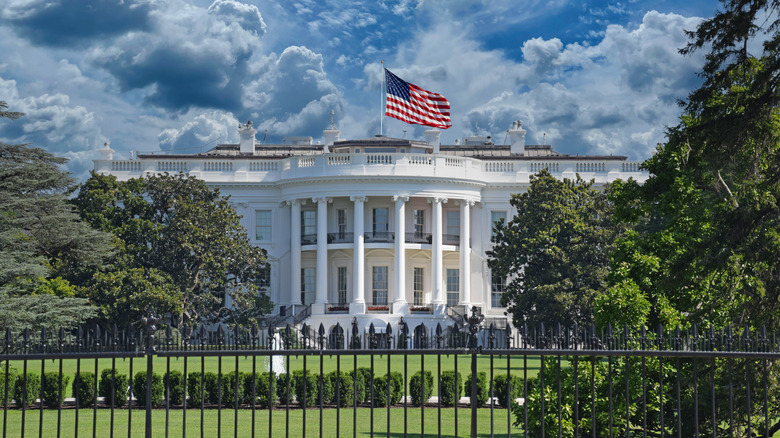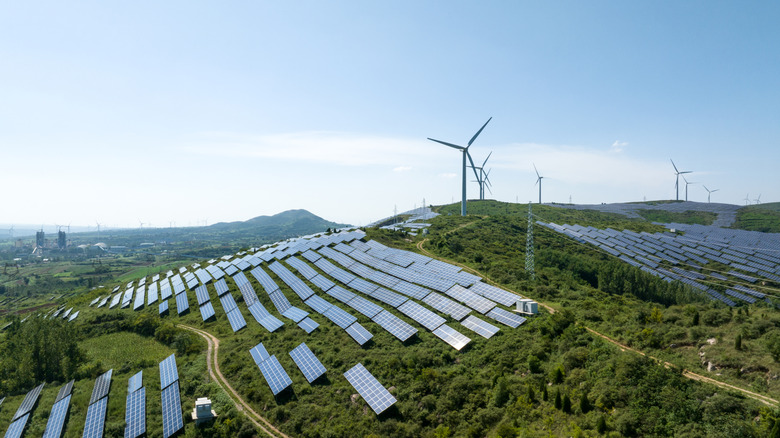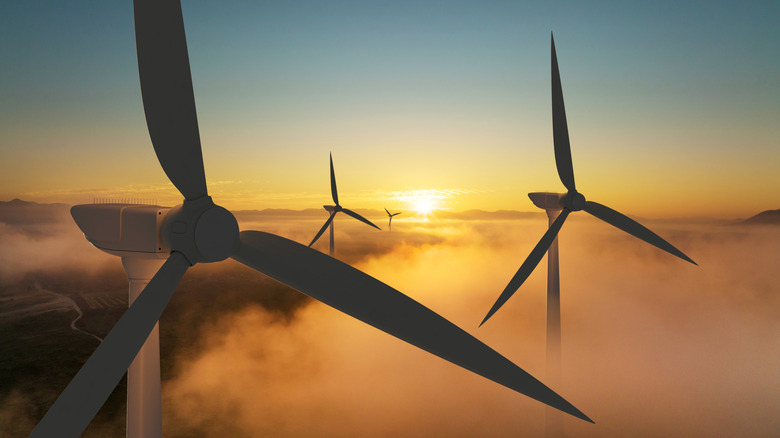This Major Energy Company Is Blaming The White House For Its Bankruptcy
One of the largest renewable energy developers has filed for bankruptcy, and it's blaming President Trump and his administration for the situation. North Carolina-based Pine Gate Renewables filed for Chapter 11 bankruptcy protection in Texas on November 6, 2025. Despite serving 38 states with commercial and utility solar power, Pine Gate struggles with liquidity issues, and Trump administration's anti-clean energy position has driven the company into bankruptcy.
"Legislative and regulatory challenges have significantly slowed solar power development," the company said in a statement to the court, via TheStreet. The narrow passage of Trump's "One Big Beautiful Bill Act" has impacted everything from the "senior deduction" for those eligible, to Social Security benefits still being taxed, to cuts to SNAP benefits in Oregon and other states.
Pine Gate's court statement highlighted how the Big Beautiful Bill's slashing of tax credits for the energy sector and limitations on using equipment from "foreign entities of concern" — like China — had put pressure on Pine Gate. Trump's rollback of United States-based clean energy has resulted in cut subsidies and tighter regulations, and a host of solar companies are filing for bankruptcy.
Plans are in place for a court-supervised asset sale
Pine Gate lists between $1 billion and $10 billion in assets and liabilities in its Chapter 11 paperwork. The renewables company's top creditors include The Carlyle Group and Brookfield Asset Management; Pine Gate owes $150 and $300 million to them, respectively. Pine Gate plans to maximize value for shareholders during the court-supervised sale of the company's assets without interrupting its services. Pine Gate intends to sell all of its assets while continuing operations at its 100 facilities. Top lenders to Pine Gate will act as "stalking horse bidders" for the operations and asset portfolio related to their own credit. Another secured lender will purchase Pine Gate's independent power producer, and 10 GWdc of new project capacity, under safe harbor.
Ben Catt, Chief Executive Officer of Pine Gate, said in a statement from the company (via PR Newswire) that the decision to file was "strategic." "With significant financial support from certain of our current lenders, we're confident that we will successfully conduct a competitive sales process that reflects the inherent value of our nationwide portfolio of solar and energy storage projects," Catt noted.
A staggering number of energy companies have filed for bankruptcy
Pine Gate Renewables is a large energy company, but it's certainly not the first to file for bankruptcy in recent years. It's easy to see why Pine Gate blames the Trump administration, which has cut billions of dollars worth of clean energy projects that once flourished under clean-energy proponent President Joe Biden. But things were looking bleak for the sector even before the new administration started rolling back clean energy initiatives. According to SolarInsure, 100 solar companies filed for bankruptcy in 2024 alone after facing pressures caused by high interest rates, financing issues, and policy changes.
While clean energy grew in the last decade nationally and is still growing globally, the Trump administration has a clear alliance with fossil fuel energy companies. The president's January 20, 2025 Executive Order, "Unleashing American Energy," eliminated the electric vehicle (EV) mandate, removed barriers to "oil, natural gas, coal, hydropower, biofuels, critical mineral, and nuclear energy resources," and also encouraged the exploration of energy sources on federal lands.
Regardless of all the causes that led to Pine Gate's bankruptcy, a changed government energy policy is at the heart of it. People who want to find ways to save on electric bills may too easily lose faith in renewable energy in a world seeming to actively work against its production. However, just because Pine Gate is bankrupt or the Ivanpah solar facility wasted billions only to fail meeting its output standards, it doesn't mean that renewable energy is completely doomed. Solar power may very well be the cheapest energy form in history, meaning energy companies will likely need to learn how to harness that power without going under financially.


